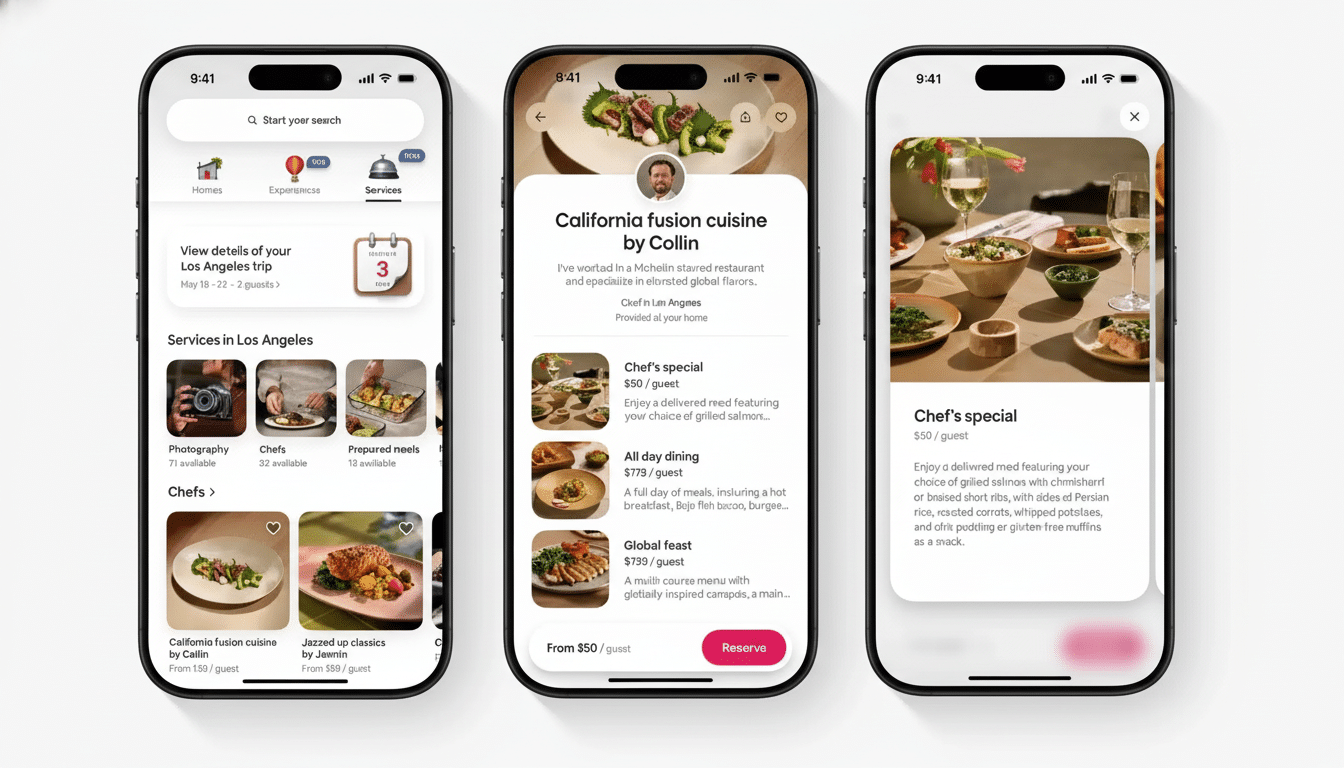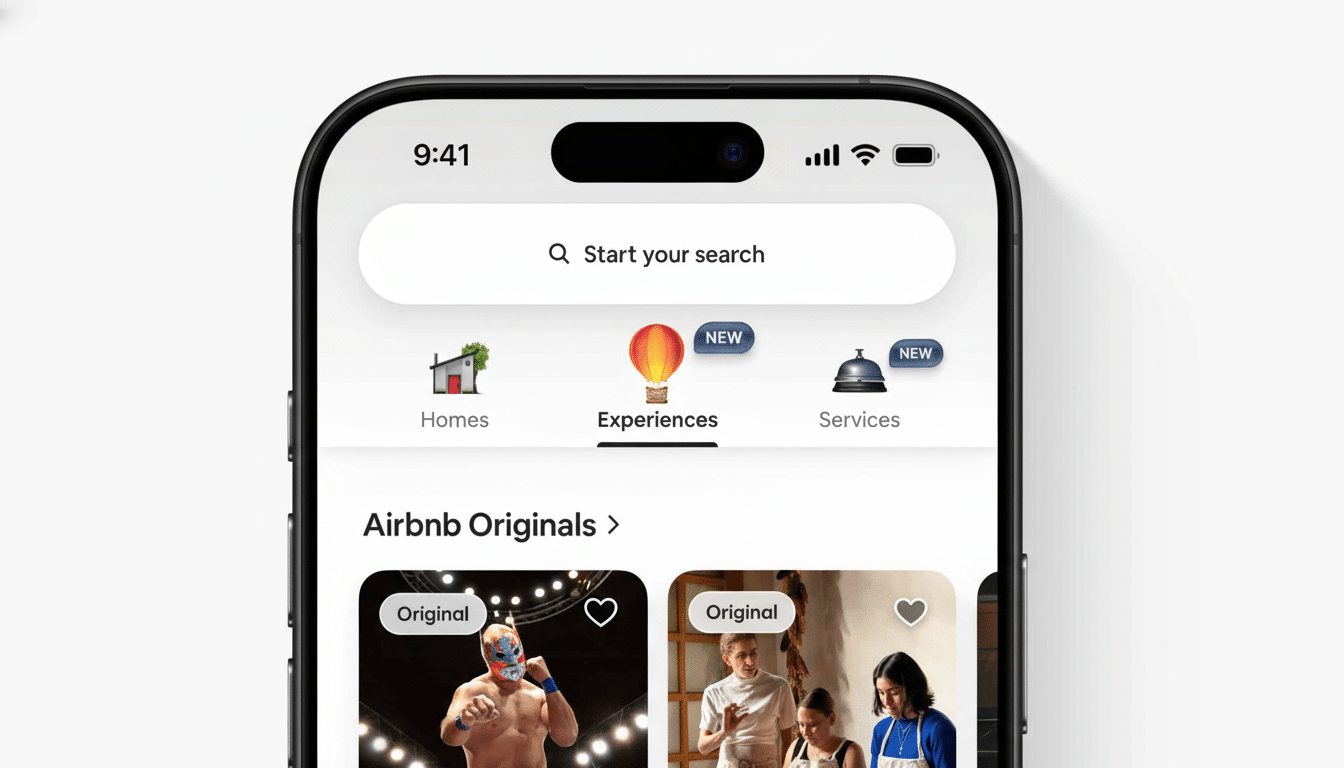Airbnb is adding a social layer to its app, with tools that allow guests to find and connect with other travelers booking the same experiences.
The push takes the platform past search-and-stay and toward yoking together groups of travelers through shared interests and on-the-ground experiences.

That lies at the heart of this update, which is a lightweight network that’s all-around activities, not status updates. Travelers who opt in can find out who else will be on a booked experience, exchange messages after the fact and keep those contacts in a new section of their profiles, turning one-off expeditions into ongoing friendships or plans for future trips.
How The New Connections Will Work for Travelers
Guests who book an experience — say, a cooking class in Lisbon or a sunrise hike near Kyoto — and opt into it can reveal their name, profile photo and where they’re from to others on the same activity. When it’s through, they might send a request to exchange photos, arrange another outing or just stay in touch — all within the Airbnb chat.
Connections don’t just show up automatically, by the way. Sharing is opt-in and there’s a consent prompt before any personal information appears. If you’d rather remain anonymous, only a photo and initials (or no name at all) are revealed. Each connection is gatekept and you can ungate a request at any time.
For safety, there are standard controls: block and report are a fingertip away, and all reports go to a trust and safety team. The company’s approach is similar to best practices employed by big messaging platforms — providing only minimal default disclosure, seeking explicit consent, and offering strong controls that users can use to avoid unwanted contact.
Why Airbnb Wants to Go Social With Experiences
Travelers are seeking more than just a place to sleep — they want community and connection.
Numerous studies by organizations like Skift and Phocuswright have mapped a clear tilt toward community, local discovery and experience-driven travel, especially among younger travelers who put shared living over heritage sightseeing. Frictionless socialization for like-minded communities of guests can drive deeper engagement and increase frequency of use.
There’s a commercial logic, as well. On its most recent shareholder materials, Airbnb said it counted hundreds of millions of nights and experiences booked over the prior full year — with experiences conceived as a counterpart to stays. Lowering the barrier to meeting people in those activities makes a single booking into a social graph moment — one that can lead to more excursions, longer trips or group bookings across the platform.

Competitively, the update brings it closer to community-first travel tools — think hostels’ noticeboards or Meetup-style outings, or apps targeting narrower communities of solo travelers. By building social discovery right into the booking flow, Airbnb sends fewer people off to external groups and instead maintains more of their travel planning and communication in one place.
Safety and Privacy Through Design in New Features
“Social features only work at scale if they feel safe. Airbnb’s opt-in disclosure, message request gates and post-experience initiation maintain contact in a sphere where context, less than email address exchange, is shared with corresponding moments. The company also introduced a standalone Connections tab, one place for users to house people they’ve met and simple tools to remove them, if desired.
Moderating it will long be a challenge — any system with messaging is a magnet for abuse. But the limiting of scope to people who quite literally shared an activity is a smart one. It’s a shrinkage of the pool of potential contacts, it means less cold outreach and that identity is more bound to an actual, verified booking and being held accountable.”
What It Means For Hosts And Local Businesses
For experienced hosts, a connected guest base can convert one-off attendees into repeaters or advocates who recruit friends. Local businesses could benefit as well. Meeting people regularly results in spur-of-the-moment plans — dinners, a visit to a museum, or a second day of kayaking — with spending that stays local.
There’s also a flywheel effect for supply. As trips shift more and more experiential, hosts with strong group activities will get expanded visibility and drive higher conversion. According to the UN World Tourism Organization’s trend analysis, experiential travel drives greater perceived value and stronger word-of-mouth — precisely “table stakes” that social features are designed to amplify.
Social Travel-Friendly Discovery Tools for Planning
Enhancing the social push, Airbnb is rolling out discovery upgrades to help guests find the right setting for shared moments. In search, we have new suggestions featuring stays just beyond a traveler’s filters — ones with slightly different price points, nearby neighborhoods or properties not offering a particular amenity; introducing alternative options that could suit more parties looking to meet up for an activity.
The updated map view brings points of interest to the fore, ranging from landmarks to attractions and restaurants so you can more easily plan meetups based on experience. The in-app assistant, now available in multiple languages in additional regions, offers quick actions for date changes and other logistics to ensure you can keep the conversation alive within the same chat where you also meet an exciting new connection.
The Bottom Line on Airbnb’s New Social Features
In attaching its social features to real-world activities, Airbnb is dodging the generic feed and making connections that begin from shared context. If the equilibrium of privacy, safety and discovery is just right, this change could turn everyday bookings into communities on the move — and make the app a destination that travelers open long after checkout.

